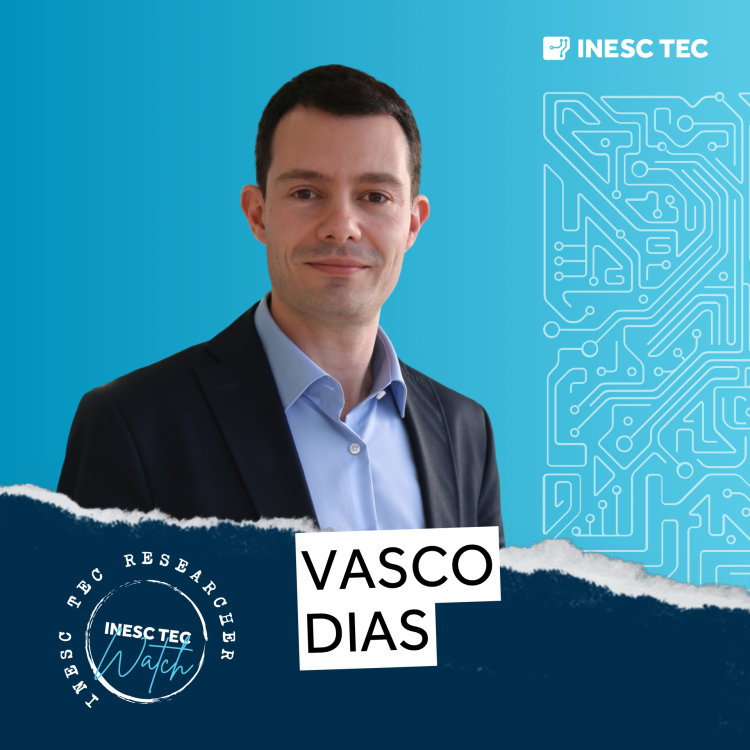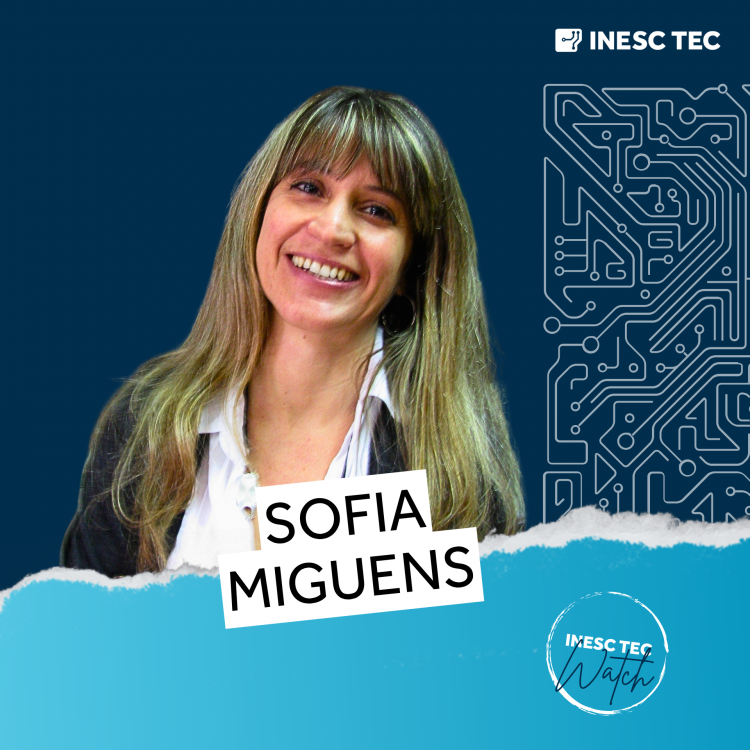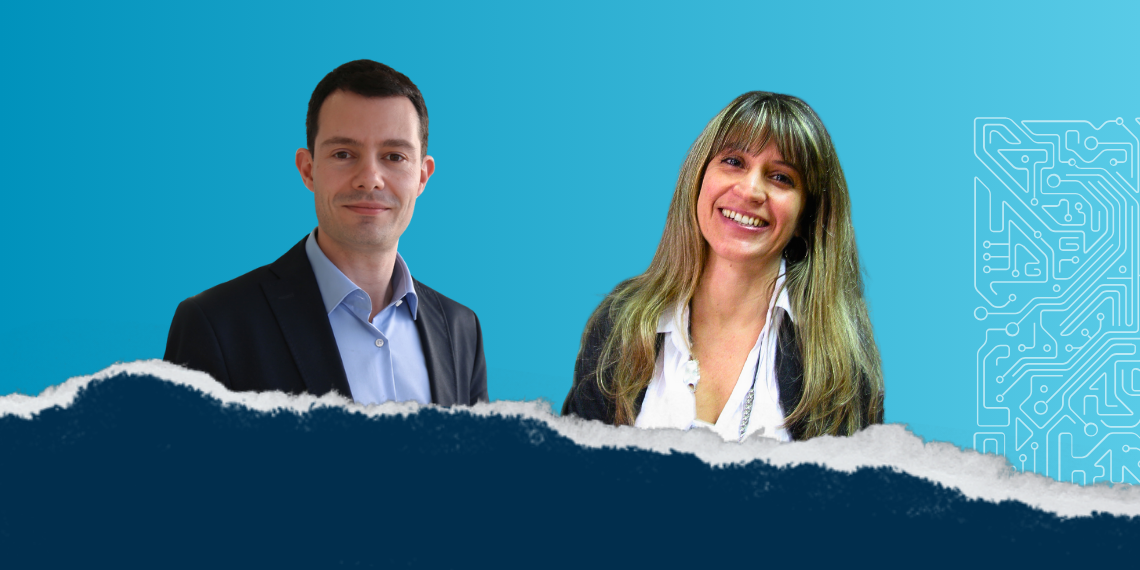At a time when machines are already capable of writing plays or simulating friendships, and themes like the reconstruction of memories are already being explored, we are forced to consider one uncomfortable question – which unfolds into further doubts: do we still control our creativity, the way we give and receive affection, our very identity? Are we capable of establishing a symbiotic relationship with Artificial Intelligence (AI) solutions? Or are we allowing AI to shape what it currently means to be human, in many dimensions?
In this edition of INESC TECWatch, we explore the international debates surrounding these issues. Following the lead of the Financial Times, we will focus on various subjects concerning the growing influence of AI: first, the impact on the creative process, then on affective relationships facilitated by chatbots, and finally on how these technologies affect memory and identity.
The invisible protagonist: creativity in the age of AI
The Financial Times article on the play “Doomers” focuses on the question – or rather, the issue – of AI’s intervention in the creative process.
“The latest advances in what is commonly referred to as ‘Artificial Intelligence’, and particularly the emergence of generative models, have reignited (a rather known) debate around the notions of authorship, originality, and creativity – especially when considering ‘works’ generated exclusively or heavily relying on those AI models, sometimes difficult to distinguish, at least superficially, from purely human creations,” mentioned Vasco Dias, lawyer and Data Protection Officer (DPO) at INESC TEC.
As the Financial Times pointed out, the play’s author relied on tools such as ChatGPT for research and editing tasks – thus questioning the notion of authorship and raising doubts about who bears responsibility when content results from human–machine collaboration. This combination ultimately challenges the traditional concept of authorship, emerging as something composite – a hybrid process that may blur the boundaries between agent and tool.
“The current standards in copyright law (with nuances in the context of computer programming, for instance) have been that the author must be human, since the law aims essentially to protect the outcome of their creative activity by ensuring them economic compensation. In this case, the expression of the author’s ideas (not the ideas themselves) is protected, whether in literary, artistic, or software works, provided they are recognised as original,” he explained.
Can true creativity continue to exist if mediated by AI tools? And what impact might this kind of creation have on artists – particularly regarding their value and appreciation by audiences? More than portraying the story of Sam Altman, CEO of OpenAI, the play challenges us to reflect on how machines may redefine what we understand by creativity, authorship, and artistic value, and what the consequences may be – for both the creator and the “consumer” of art and culture.

A friend to all is a friend to none
The same newspaper also published an article about Character.ai, a chatbot platform where users can simulate relationships with “personas” of their choice. According to the creator, it may contribute to “a utopian world” in which such tools are used to test hypotheses and “make real relationships deeper.” Yet from the outset, relevant ethical questions emerge concerning the relationship between technology and human intimacy – and how legitimate it is to form bonds with entities that lack consciousness (given that relationships involve reciprocity, trust, subjectivity, and so forth).
“The tendency to anthropomorphise AI systems (reflected in the ways they are often represented and named) constitutes an additional risk in the context of their use,” mentioned Vasco Dias.
When focusing on subjectivity, a relationship (whether friendship or even romantic) with an AI entity is a concept that challenges the boundaries of what we understand as a human (and authentic) relationship. Issues like emotional dependency and possible social isolation come into play, as well as how easily genuine human bonds may be replaced by “artificial” ones. These can negatively affect identity formation, empathy, and the definition of personal and interpersonal boundaries.
(the article mentioned several examples of this, including the possible role of such a tool in a suicide attempt.)
“With adequate norms, technology can help bring us closer together, and certain uses of virtual assistants can indeed be extremely useful in addressing and monitoring social and human problems in specific contexts – including some that are highly sensitive and high-risk. But they may also isolate us further, if we start replacing human relationships with algorithms programmed to ‘understand’ us,” added Vasco Dias, again on the issue of the human–machine relationship.
Systems such as Character.ai, designed to provide companionship and tackle loneliness, can in fact aggravate divergent behavioural patterns, creating an “illusion” of connection that fails to replace the value of human relationships – and may even produce precisely the opposite effect.
Between memory and algorithm
The short film “Recall Me Maybe” (Financial Times) explores the repercussions of AI on the reconstruction of memories and the formation of personal identity. In this work, Artificial Intelligence is used to fill gaps in the memories of a man suffering from dementia, within a storyline involving his family – one that focuses on how they “navigate” the process and question whether the memories are real or artificial.
“What are true memories and what are false ones, knowing that they are what ‘make’ us? It’s our entire personal identity that’s at stake – and that’s the central question of this short film,” said Sofia Miguens, Full Professor and researcher at the Department of Philosophy of the Faculty of Arts and Humanities of the University of Porto (FLUP), when asked about the philosophical issues raised by this work. “What we think we are is, to a large extent, what we remember – our personal history and the contingent events it contains (…) Our memory is, for that reason, fundamental to who we are as human beings,” she continued, recognising the structural role of memory and how AI interventions in this field can cast doubt on the authenticity of recollections and the integrity of identity.
Throughout her distinguished academic career, the researcher has explored these subjects and acknowledged that such concerns have become increasingly relevant – and topical – with the development of projects such as Synthetic Memories, which uses generative AI to create “photographs” from personal accounts, turning memories into pictures without the using any documents and expanding the boundaries of what we consider to be memory. Does this enhance the well-being of those suffering from cognitive loss or traumatic events? Or does it undermine the authenticity of memories, with profound emotional consequences?
In addition to this example, one can mention deepfakes and other ways in which AI can create visual illusions that tell “fake” stories, potentially distorting our understanding of the past – and maybe influencing the way we act in the future. These are technologies carrying significant risks of trust manipulation, both on a personal and collective level, deepening the ethical and psychological questions associated with the use of Artificial Intelligence technologies.

The essential international debate
And since these topics could not be timelier, in a room expected to be full – and on a stage featuring renowned experts in the field -, one key question will be discussed: What does it mean to be human in the age of Artificial Intelligence? This is the central theme of the 10th INESC TEC Autumn Forum – in the year that marks the 40th anniversary of INESC TEC.
A question posed as a challenge; the answer may not be immediate or concrete. Perhaps most of us already know it but still feel uncomfortable admitting it. Artificial Intelligence (AI) has ceased to be merely a tool; it has become a mirror that reveals – clearly or twistedly – who we are and what we seek to become.
On 17 November, at Casa da Música, we will learn more – about what it means to be human in the age of AI (or at least, that is our hope).


 News, current topics, curiosities and so much more about INESC TEC and its community!
News, current topics, curiosities and so much more about INESC TEC and its community!